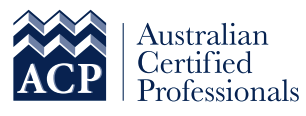Changes to Super for under - 18s
From 1 July 2022, you will need to pay super for your employees who are under 18 years old if they work more than 30 hours for you in a week.
This is because the $450-per-month threshold for super guarantee is being removed.
Employees who are under 18 will be eligible for super if they work more than 30 hours in a week, regardless of how much they’re paid.
For example, Jenny is 17 years old and works a 32-hour week once a month at her local hardware store, earning $382 before tax. She also works 6 hours a month as a barista for a cafe down the road.
As Jenny works over 30 hours in one week in her job with the hardware store, her hardware employer will need to pay her super from 1 July 2022.
As Jenny does not work 30 hours in a week in her job as a barista, she won’t be entitled to super for this work. Likewise, Jenny won't be entitled to super for any weeks she works less than 30 hours for the hardware store.
As we move closer to 1 July 2022, check your payroll and accounting systems have been updated so you can correctly calculate your employees' super guarantee payments.


Want more information?

ACP Accountants

